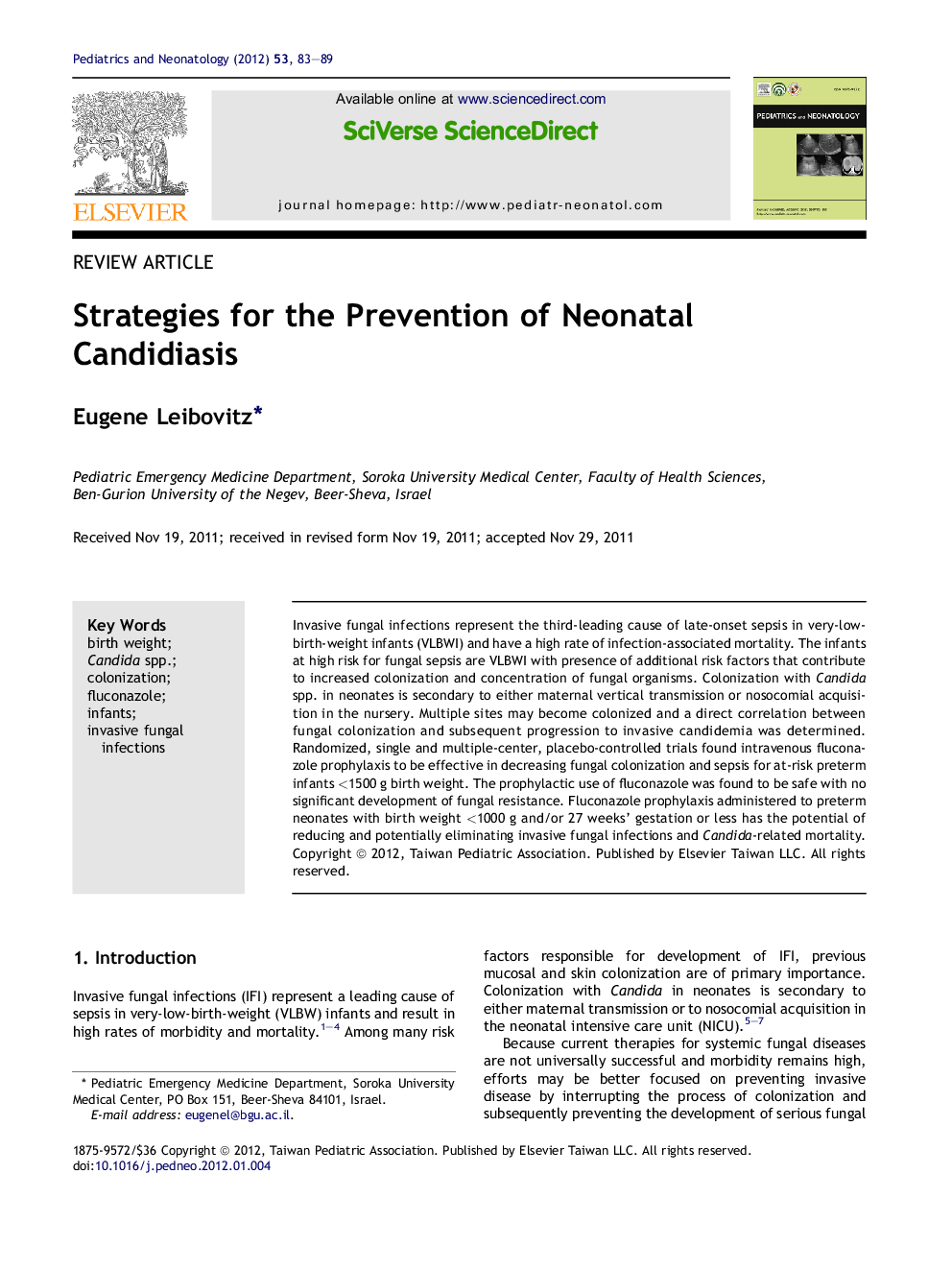| Article ID | Journal | Published Year | Pages | File Type |
|---|---|---|---|---|
| 4175379 | Pediatrics & Neonatology | 2012 | 7 Pages |
Invasive fungal infections represent the third-leading cause of late-onset sepsis in very-low-birth-weight infants (VLBWI) and have a high rate of infection-associated mortality. The infants at high risk for fungal sepsis are VLBWI with presence of additional risk factors that contribute to increased colonization and concentration of fungal organisms. Colonization with Candida spp. in neonates is secondary to either maternal vertical transmission or nosocomial acquisition in the nursery. Multiple sites may become colonized and a direct correlation between fungal colonization and subsequent progression to invasive candidemia was determined. Randomized, single and multiple-center, placebo-controlled trials found intravenous fluconazole prophylaxis to be effective in decreasing fungal colonization and sepsis for at-risk preterm infants <1500 g birth weight. The prophylactic use of fluconazole was found to be safe with no significant development of fungal resistance. Fluconazole prophylaxis administered to preterm neonates with birth weight <1000 g and/or 27 weeks’ gestation or less has the potential of reducing and potentially eliminating invasive fungal infections and Candida-related mortality.
